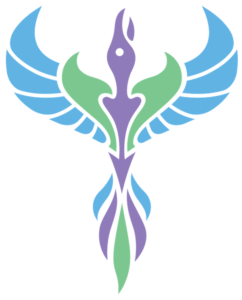Posts Tagged ‘relaxation’
Breathing for Relaxation
Breathing is an important tool in moments when you feel overwhelmed.
When you are stressed, your breathing becomes more shallow: the kind of quick, panicked breath that sees your chest expanding. With this kind of breathing, you are not getting nearly enough oxygen to nourish the cells in your body and brain, and stress escalates quickly. The solution is to first realize this is happening in the moment- you are overwhelmed and you need to regain control. A signal way to do this is to make a conscious effort to slow down your racing brain by breathing slower.
Breathing slower helps you achieve:
-
A reduction in blood pressure
-
A healthier circulation of oxygenated blood to the cells of the body and brain
-
Less tension in muscles
-
Boosts energy
These qualities translate to you feeling:
-
Sharper mentally
-
Clearer in mind
-
Less pain in the body
-
Less anxiety
Step up the relaxation one more notch with balanced breathing
A deep, diaphragmatic breath is one that contracts the diaphragm, draws air in through the nose and fills the lungs to the very bottom, where the blood is circulating; this kind of breath is characterized by the abdomen expanding rather than the chest. In moments of stress, take a minute to focus on breathing.
- Close your eyes to block out extra stimuli
- Breathe in for four seconds and out for four seconds evenly
- Link your breaths together in one fluid cycle
The rhythm does wonders, as does the influx of oxygen rushing to cells in need. At Community Chiropractic & Acupuncture, we believe that breathing is a powerful way to influence relaxation. At our office in Park Slope, we encourage a lifestyle that keeps stress at bay through chiropractic adjustment, attention to chronically tense muscles and the use of acupuncture to heal pain and fight anxiety.
Dr. Karen Thomas, D.C.
Breathing Slower
As a society, we are actively attempting to unlearn proper breathing technique and it has enormous ramifications on quality of life. If you were only drawing 2/3 of the oxygen you could, and not expelling enough CO2 you would be severely disadvantaging yourself, yet this is what we are choosing to do in the face of air pollution, sit-heavy lifestyles, poor diets and lack of awareness regarding posture. In essence, many of us are only capturing the amount of oxygen needed to plod along, but not enough to prosper and feel great. At Community Chiropractic & Acupuncture, we believe in a more conscious way of life, and there is no better, quicker or easier way to practice this than to start breathing slower and deeper.
Taking a deep breath means:
- In through your nose
- Breathing into the lower belly, which should expand
- Holding for a few seconds
- Exhaling fully and slowly (think 4 seconds)
This helps immediately with anxiety or panic, but it can also be adapted as your primary breathing technique. While breathing only 10 times a minute may seem extreme, it is worth trying to reduce your number of breaths per minute, so that you can feel better. Capturing the full amount of oxygen means you will experience a noticeable increase in productivity and mood. We want to see everyone reap their true potential from the respiratory process, so that every cell can function with the full amount of inputs it needs to provide the body with energy to prosper.
Dr. Karen Thomas, D.C.
Relaxing Made Easy
“Take a deep breath,” is an oft-repeated maxim that has lost its gravitas amidst new generations who seem to be spending more time “relaxing” than ever. But I can guarantee you that no matter who you are, stress is still cycling and tension is buidling (albeit at different rates and in differing amounts) throughout the week. Some people happen to be very proactive in their management of it, while some people have developed coping mechanisms that waylay the problem and allow them to work and play despite stress being on the fringes; still others watch their lives suffer at the hands of stress and their bodies suffer from chronically high levels of tension. At Park Slope Chiroractic, we believe that relaxation is a key to finding happiness and we want to offer you all our experience in this endeavor.
Ways to help you relax throughout the day, with your brain and body: Massage your hands and wrists, give yourself a stretch and shake out the tension every once in a while. We can show you acupressure points that can be pressurized by yourself at work to help relieve tension or pain wherever you may be feeling it.
Control your environment: not enough can be said about creating an environment that is conducive to relaxation and productivity, both at home and in the office.
Exercise: During a stressful day at work, try going for a walk outside; the more vigorous the better. eating lunch somewhere outside where you can be under the sun. Bright light and vitamin D are very effective at fighting depression and instilling mental calm.
Creative stimulation: What is your outlet? Doing something that is creative, requires concentration, or both helps you stay centered and focus on something concrete that helps your brain reset, while also bringing you pleasure for whatever you produce.
With diet:
- Green tea: for an antioxidant boost, and anger fighting properties.
- Honey: for fighting inflammation in the brain, which combats stress
Everyone could use a plan that helps them manage their own unique blend of stress during the day. At Community Chiropractic & Acupuncture in Park Slope we have many years of experience helping people find true relaxation in and outside of our office; give us a call to schedule an appointment today.
Dr. Karen Thomas, D.C.
Acupuncture for Menopause
Acupuncture is a natural and sensible choice when it comes to responding to the symptoms of menopause: from the perspective of Traditional Chinese Medicine, a momentous natural process requires a natural response to keep hormones and symptoms in balance. Symptoms of menopause that have been shown to respond well to acupuncture include hot flashes, irritability, and improving quality and quantity of sleep.
Rather than treating menopause as one specific syndome, Traditional Chinese Medicine treats its many symptoms with a multi-dimensional response. We seek out acupuncture points that correspond directly to the physical and emotional side-effects of menopause. Furthermore, by encouraging endorphin release, acupuncture helps treat chronic pain and several studies show that acupuncture is linked to an increase in nighttime melatonin production and a boost in total sleep time. While the treatment does involve the insertion of very thin needles into the skin, the effect we produce is one of intense relaxation that overrides the brief moment of discomfort during insertion.
Menopause is unique to every woman, not only because it can occur at any age, but also because the degree of symptoms varies and thus an individual treatment plan is absolutely necessary. At Community Chiropractic & Acupuncture, we begin with a conversation regarding your medical and lifestyle history to create an individually tailored plan that accounts for your emotions and needs. Through acupuncture and chiropractic treatment, we hope to promote a culture of relaxation in your life during a time of intense emotional upheaval.
Dr. Karen Thomas, D.C., L.Ac.




